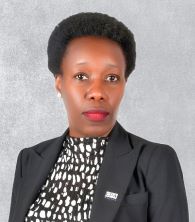By CPA Laura Orobia Aseru
The National Council for Higher Education (NHCE) undertook a significant step towards enhancing the quality and comparability of qualifications in Uganda. On 20 January 2023, the NCHE approved the Uganda Accountancy Qualifications Framework (UAQF), a vital subset of the broader Uganda Higher Education Qualifications Framework (UHEQF). The UAQF aims to provide a standardised basis for assessing and comparing accountancy qualifications. By establishing a common framework, it addresses the misconceptions surrounding professional accountancy qualifications and their relevance in job selections. Whether you are an employer or an aspiring accountant, understanding the UAQF is crucial.
One of the key revelations within the UAQF is the compatibility between the Certified Public Accountant (CPA) qualification and the Postgraduate Diploma (PGD). Contrary to popular belief, a CPA holds its own against a bachelor’s. Employers seeking to hire accountants should take note. The UAQF recommends prioritising CPA holders, regardless of whether they possess a bachelor’s degree for accountancy-related roles.
The Accountants Act, 2013 underscores the importance of professional accountancy qualifications. To be recognised as an accountant, one must hold such a qualification. The UAQF reinforces this requirement, emphasising that a bachelor’s degree is optional. What truly matters is the profession of a CPA – a credential that signifies expertise and competence.
Today, HEIs recognise the value of a CPA. It has become a prerequisite for admissions into Master of Business Administration (MBA) and Master of Science (MSc) programmes in Accounting and Finance without necessarily one holding a bachelor’s degree. Aspiring students should not underestimate the significance of the CPA qualification. It opens doors to advanced education and career opportunities.
In light of these developments, the public is urged to uphold the CPA professional accountancy qualification’s role in the market. The UAQF ensures that accountants are evaluated fairly based on their expertise rather than their academic educational background.
As Uganda continues strengthening its educational landscape, the UAQF is a beacon of clarity and equity. Employers, educators, and aspiring accountants alike can now confidently navigate the path to success.
The author is a member of the Council of the Institute of Certified Public Accountants of Uganda, and the Chair, Public Accountants Examinations Board (PAEB)



